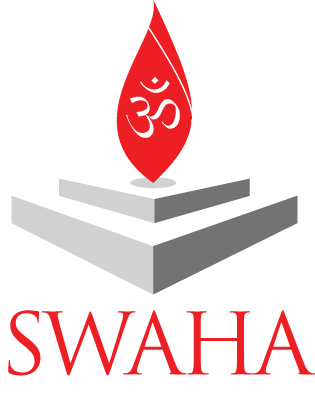 Trinidad and Tobago is a reactive society, falling victim to varying powers of influence from every -ism one can blurt out, in addition to lexicon rhyming with the suffix –al (political, societal, spiritual and so on). How long will issues regarding matters of state resist globalizing trends? How long will it take for a tiny population to recognize the need for inward reflection? Most importantly, will the state ever be able to accept the tenets of secularism, solely as its mandate for legislative frameworks in Trinidad and Tobago?
Trinidad and Tobago is a reactive society, falling victim to varying powers of influence from every -ism one can blurt out, in addition to lexicon rhyming with the suffix –al (political, societal, spiritual and so on). How long will issues regarding matters of state resist globalizing trends? How long will it take for a tiny population to recognize the need for inward reflection? Most importantly, will the state ever be able to accept the tenets of secularism, solely as its mandate for legislative frameworks in Trinidad and Tobago?
True secularism is impossible to achieve whilst theocracy is highly impractical to implement by any governing body. This is the real argument, an argument in which global powers all over the world can never balance nor implement in individual philosophical extremes. The history of Trinidad and Tobago has not and cannot as it stands today bypass or forgo problems when determining which sections of society really hold true authenticity as the “first peoples,” and as a result of some inherent moral authority that comes with such an achievement, effect higher stakes on what is quickly becoming a secular theocracy. Our country has not yet determined for itself what type of governance our ‘special’ democracy demands nor will it ever be able to sustain a delicate balance between religion and legislation in Trinidad and Tobago.
It is crucial as Hindus to appreciate the inner workings of progressive organizations; specifically SWAHA, which aligns itself to morality and integrity. Most importantly, decision-making influenced by scriptural injunctions and the changing cultural, social, psychological and biological subtleties of the human condition. The problem is, has and will never be sourced from a religious perspective, but that of a political enterprise, wreaking havoc on human rights and emotional sensitivities. Hinduism is a religion of change and can be defined safely as a way of life that progresses the conditions of the human being, be it the past, present or future. Why then would a Hindu or religious organizations of similar values be perturbed by this social ‘media’ outcry or the ignorant ramblings of television and radio hosts, whose ratings are of utmost importance, inflicting chaos haphazardly in the minds of people.
The real issue will never be deliberated fairly because a panel of worthy deliberators with objective views and credibility is impossible to find. I have maintained the argument that religion is a business if one entertains selling, buying and comparing scriptures, values, norms and practices as products. What a religion purports is unfortunately aligned and compared to the ideology of another religion, which results in either a relegation or acclimation, as society sees fit. There is no possibility of a ‘utopian’ society following one rule, one God, one law, one people, one ideology or one philosophy, so why should a law be amended to reflect, ‘one?’
The argument that there is commonality in beliefs and practices reflected by ‘many,’ should not be the determining factor when amending legislation, as is the case for failed attempts at creating a secular state. However, if the law is to be amended to protect and reflect what is right, then inherent in such a practice reveals a strong theocratic principle or a moral ideological standpoint-a moral compass-sourced from belief in the supreme. A belief in morality defined by and imposed by the theocratic state cannot enforce democracy; instead, stand in opposition to it. The people of Trinidad and Tobago cannot allow themselves to be swayed by the shifting tides in our systems of power and governance. Arguing for argument sake negates the purpose of the argument. Stand strong, stand powerful and resist the temptations of our young society. In chaos, there is order.
Pt. Varistha Persad

